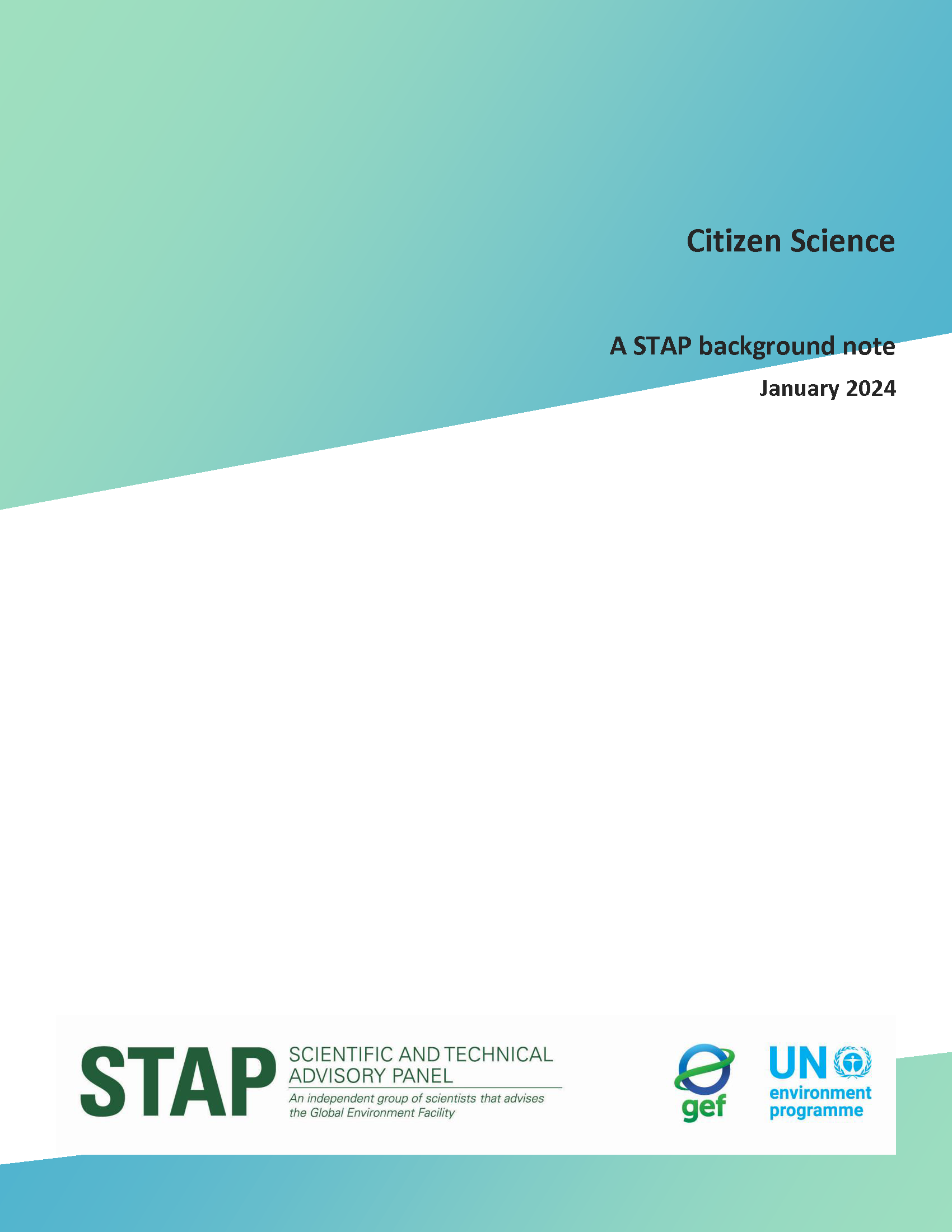The rapid pace of global change requires a “whole-of-society” approach to harness scientific understanding to anticipate, adapt, and innovate in addressing environmental degradation, which can often be achieved more effectively if done in partnership with those outside professional and scientific circles. Citizen science can contribute to delivering global environmental benefits (GEBs), and raise community awareness, improve scientific literacy, promote social learning and behavior change, engender empowerment, and increase the transparency and accountability of environmental decision-making. The inclusion of civil society in Global Environment Facility (GEF) programming can also promote diverse “ways of knowing” by providing pathways to engage Indigenous Peoples, local communities, and Indigenous and local knowledge.
Using information from peer-reviewed scientific and practitioner (e.g. international and non-governmental organizations) literature and a non-exhaustive review of the use of citizen science in GEF projects, STAP’s background note on citizen science illustrates the benefits and opportunities to the GEF of enhancing public engagement through citizen science. It describes citizen science typologies, summarizes the benefits of adopting citizen science practices, describes barriers and challenges, and offers some considerations for moving forward.





